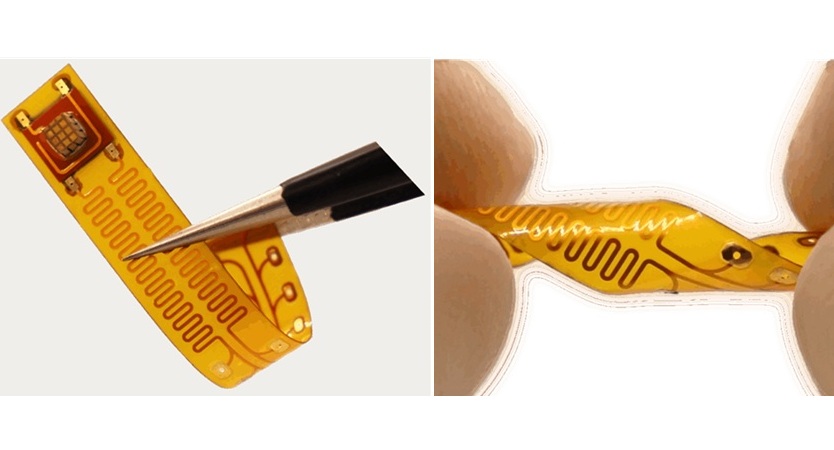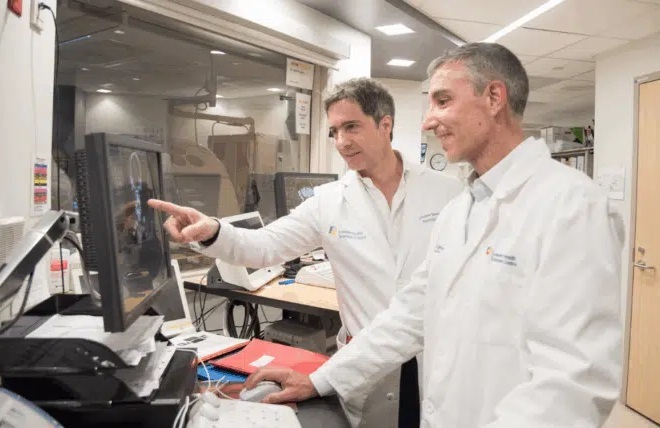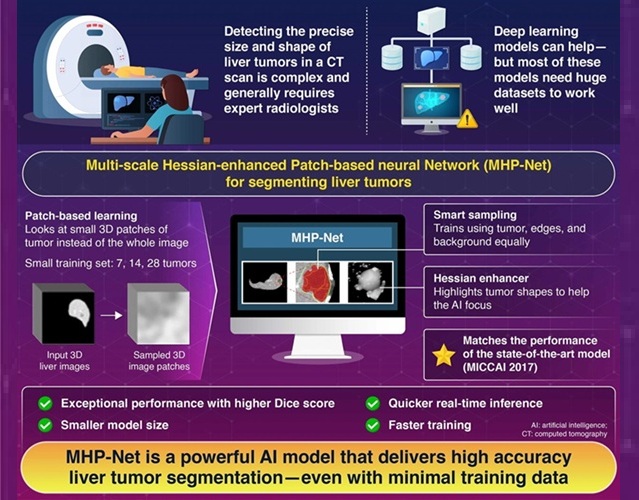AI Predicts Heart Disease Risk Using Single X-Ray
|
By MedImaging International staff writers Posted on 30 Nov 2022 |
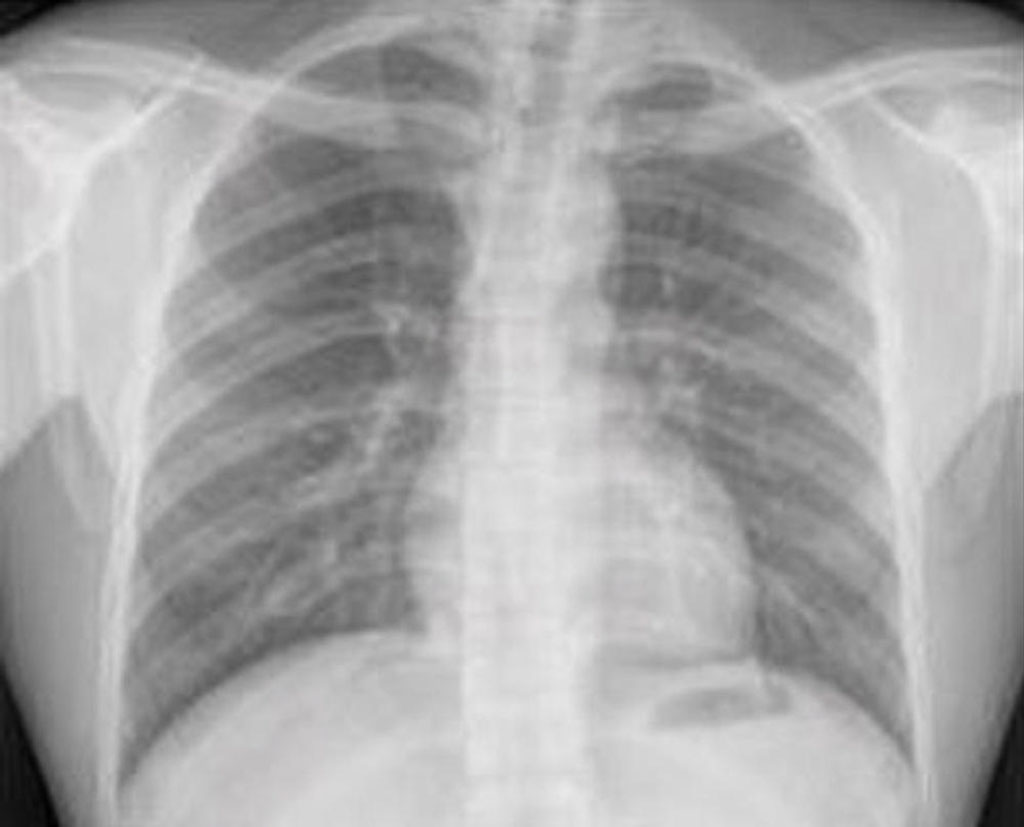
Current guidelines recommend estimating 10-year risk of major adverse cardiovascular disease events to establish who should get a statin for primary prevention. This risk is calculated using the atherosclerotic cardiovascular disease (ASCVD) risk score, a statistical model that considers a host of variables, including age, sex, race, systolic blood pressure, hypertension treatment, smoking, Type 2 diabetes and blood tests. Statin medication is recommended for patients with a 10-year risk of 7.5% or higher. Now, researchers have developed a deep learning model that uses a single chest X-ray to predict the 10-year risk of death from a heart attack or stroke, stemming from atherosclerotic cardiovascular disease.
Deep learning is an advanced type of artificial intelligence (AI) that can be trained to search X-ray images to find patterns associated with disease. A team of researchers at Massachusetts General Hospital (Boston, MA, USA) trained a deep learning model using a single chest X-ray (CXR) input. They developed the model, known as CXR-CVD risk, to predict the risk of death from cardiovascular disease using 147,497 chest X-rays from 40,643 participants. The researchers tested the model using a second independent cohort of 11,430 outpatients (mean age 60.1 years; 42.9% male) who had a routine outpatient chest X-ray and were potentially eligible for statin therapy.
Of 11,430 patients, 1,096, or 9.6%, suffered a major adverse cardiac event over the median follow-up of 10.3 years. There was a significant association between the risk predicted by the CXR-CVD risk deep learning model and observed major cardiac events. The researchers also compared the prognostic value of the model to the established clinical standard for deciding statin eligibility. This could be calculated in only 2,401 patients (21%) due to missing data (e.g., blood pressure, cholesterol) in the electronic record. For this subset of patients, the CXR-CVD risk model performed similarly to the established clinical standard and even provided incremental value. Additional research, including a controlled, randomized trial, is necessary to validate the deep learning model, which could ultimately serve as a decision-support tool for treating physicians.
"Our deep learning model offers a potential solution for population-based opportunistic screening of cardiovascular disease risk using existing chest X-ray images," said the study's lead author, Jakob Weiss, M.D., a radiologist affiliated with the Cardiovascular Imaging Research Center at Massachusetts General Hospital and the AI in Medicine program at the Brigham and Women's Hospital in Boston. "This type of screening could be used to identify individuals who would benefit from statin medication but are currently untreated."
"The beauty of this approach is you only need an X-ray, which is acquired millions of times a day across the world," Dr. Weiss said. "Based on a single existing chest X-ray image, our deep learning model predicts future major adverse cardiovascular events with similar performance and incremental value to the established clinical standard."
"We've long recognized that X-rays capture information beyond traditional diagnostic findings, but we haven't used this data because we haven't had robust, reliable methods," Dr. Weiss added. "Advances in AI are making it possible now."
Related Links:
Massachusetts General Hospital
Latest Radiography News
- AI Hybrid Strategy Improves Mammogram Interpretation
- AI Technology Predicts Personalized Five-Year Risk of Developing Breast Cancer
- RSNA AI Challenge Models Can Independently Interpret Mammograms
- New Technique Combines X-Ray Imaging and Radar for Safer Cancer Diagnosis
- New AI Tool Helps Doctors Read Chest X‑Rays Better
- Wearable X-Ray Imaging Detecting Fabric to Provide On-The-Go Diagnostic Scanning
- AI Helps Radiologists Spot More Lesions in Mammograms
- AI Detects Fatty Liver Disease from Chest X-Rays
- AI Detects Hidden Heart Disease in Existing CT Chest Scans
- Ultra-Lightweight AI Model Runs Without GPU to Break Barriers in Lung Cancer Diagnosis
- AI Radiology Tool Identifies Life-Threatening Conditions in Milliseconds

- Machine Learning Algorithm Identifies Cardiovascular Risk from Routine Bone Density Scans
- AI Improves Early Detection of Interval Breast Cancers
- World's Largest Class Single Crystal Diamond Radiation Detector Opens New Possibilities for Diagnostic Imaging
- AI-Powered Imaging Technique Shows Promise in Evaluating Patients for PCI
- Higher Chest X-Ray Usage Catches Lung Cancer Earlier and Improves Survival
Channels
MRI
view channel
AI-Assisted Model Enhances MRI Heart Scans
A cardiac MRI can reveal critical information about the heart’s function and any abnormalities, but traditional scans take 30 to 90 minutes and often suffer from poor image quality due to patient movement.... Read more
AI Model Outperforms Doctors at Identifying Patients Most At-Risk of Cardiac Arrest
Hypertrophic cardiomyopathy is one of the most common inherited heart conditions and a leading cause of sudden cardiac death in young individuals and athletes. While many patients live normal lives, some... Read moreUltrasound
view channel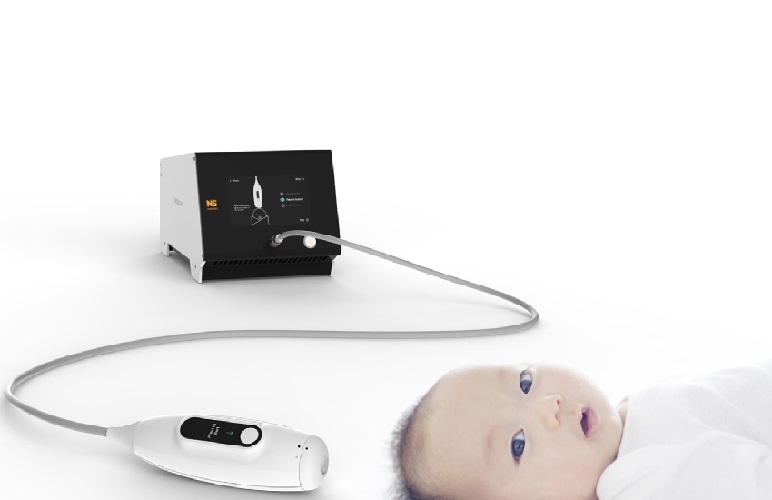
Non-Invasive Ultrasound-Based Tool Accurately Detects Infant Meningitis
Meningitis, an inflammation of the membranes surrounding the brain and spinal cord, can be fatal in infants if not diagnosed and treated early. Even when treated, it may leave lasting damage, such as cognitive... Read more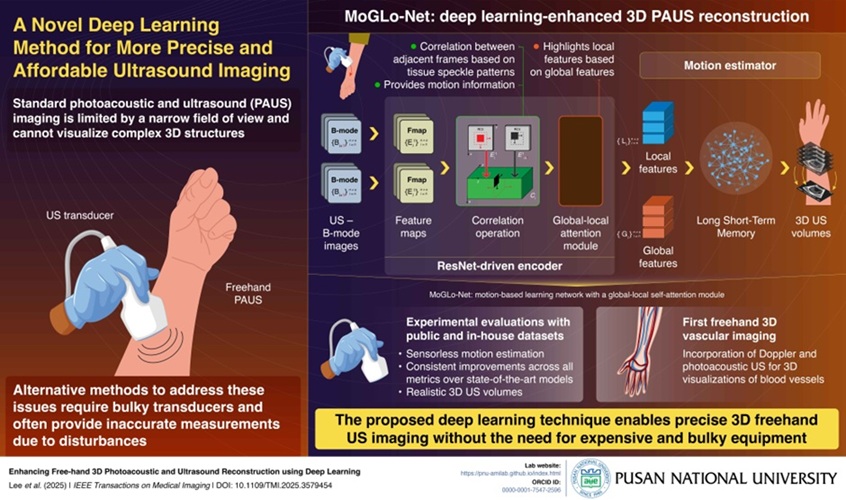
Breakthrough Deep Learning Model Enhances Handheld 3D Medical Imaging
Ultrasound imaging is a vital diagnostic technique used to visualize internal organs and tissues in real time and to guide procedures such as biopsies and injections. When paired with photoacoustic imaging... Read moreNuclear Medicine
view channel
New Camera Sees Inside Human Body for Enhanced Scanning and Diagnosis
Nuclear medicine scans like single-photon emission computed tomography (SPECT) allow doctors to observe heart function, track blood flow, and detect hidden diseases. However, current detectors are either... Read more
Novel Bacteria-Specific PET Imaging Approach Detects Hard-To-Diagnose Lung Infections
Mycobacteroides abscessus is a rapidly growing mycobacteria that primarily affects immunocompromised patients and those with underlying lung diseases, such as cystic fibrosis or chronic obstructive pulmonary... Read moreGeneral/Advanced Imaging
view channel
AI Algorithm Accurately Predicts Pancreatic Cancer Metastasis Using Routine CT Images
In pancreatic cancer, detecting whether the disease has spread to other organs is critical for determining whether surgery is appropriate. If metastasis is present, surgery is not recommended, yet current... Read more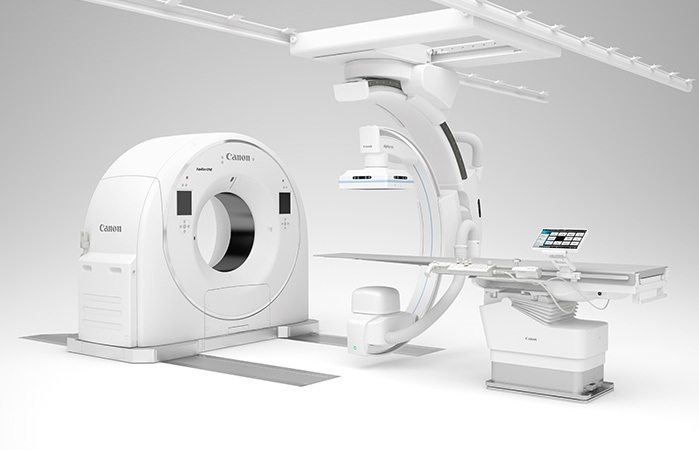
Cutting-Edge Angio-CT Solution Offers New Therapeutic Possibilities
Maintaining accuracy and safety in interventional radiology is a constant challenge, especially as complex procedures require both high precision and efficiency. Traditional setups often involve multiple... Read moreImaging IT
view channel
New Google Cloud Medical Imaging Suite Makes Imaging Healthcare Data More Accessible
Medical imaging is a critical tool used to diagnose patients, and there are billions of medical images scanned globally each year. Imaging data accounts for about 90% of all healthcare data1 and, until... Read more
Global AI in Medical Diagnostics Market to Be Driven by Demand for Image Recognition in Radiology
The global artificial intelligence (AI) in medical diagnostics market is expanding with early disease detection being one of its key applications and image recognition becoming a compelling consumer proposition... Read moreIndustry News
view channel
GE HealthCare and NVIDIA Collaboration to Reimagine Diagnostic Imaging
GE HealthCare (Chicago, IL, USA) has entered into a collaboration with NVIDIA (Santa Clara, CA, USA), expanding the existing relationship between the two companies to focus on pioneering innovation in... Read more
Patient-Specific 3D-Printed Phantoms Transform CT Imaging
New research has highlighted how anatomically precise, patient-specific 3D-printed phantoms are proving to be scalable, cost-effective, and efficient tools in the development of new CT scan algorithms... Read more
Siemens and Sectra Collaborate on Enhancing Radiology Workflows
Siemens Healthineers (Forchheim, Germany) and Sectra (Linköping, Sweden) have entered into a collaboration aimed at enhancing radiologists' diagnostic capabilities and, in turn, improving patient care... Read more















